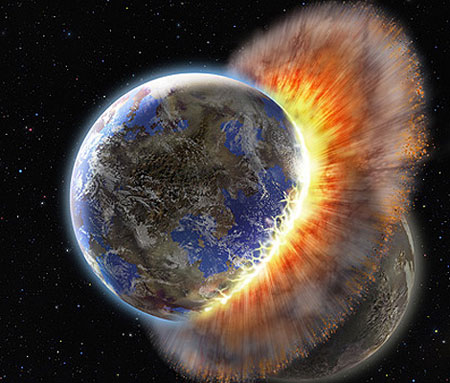Why so many people believe that world gonna end?
Some psychological factors make many people believe in predicting the end of the world even though they contain many absurd things.
Harold Camping, founder of Family Radio and a prominent figure in the American Catholic community , once said that on May 21 the earth was shaken by the strongest earthquake in human history. kind of before many terrible events happened then the universe was destroyed by sea of fire. His prediction caused a stir among American public opinion, although many people thought that it was just a joke. A news site in New York said several thousand people sold their homes and resigned due to Camping's prediction.
The Pew Research Center has conducted a public opinion poll on the Day of Judgment - the day when Jesus reunited and brought true Christians to heaven - showing that 41% of Americans believe in God. Jesus will return to earthly before 2050.
So why is a human part so excited about apocalyptic predictions? Many people believe that it is a way to make money or attract the attention of public opinion. Camping has built his name and Family Radio radio with such rumors. But Professor Lorenzo DiTommaso, a religious expert at Concordia University in Canada, identifies people like Camping with true faith, otherwise others will not believe their predictions, Newscientist said.
One theory is that rumors about apocalypse satisfy the desire to discover human unknowns. It can also be a way to explain the world around us.
' To some extent, apocalyptic predictions contain many logical elements. It helps people explain time, space and human existence. They are not scientific subjects, but they also explain things in the world , 'DiTommaso said.

A part of humanity believes that the end of the world will happen someday.
(Photo: brisbanetimes.com.au).
According to DiTommaso, many sociological studies prove that those who are interested in predicting the end of the world often find ways to explain all the mysterious phenomena in the world around them.'They are much smarter than most people in society and are always looking for answers to everything in life , ' he said.
Many documents record that even Isaac Newton, a famous British physicist, also spent a lot of time deciphering apocalyptic predictions.
One unusual thing is that people who believe in apocalyptic prophecy do not show disappointment or anger whenever the "prophets" misjudge. Some psychological studies show that the belief in the end of the world increases after every prediction does not become a reality.
Many psychologists believe that a part of humanity pursues conflicting beliefs. For example, one might believe that life on earth will end this year, but they still buy houses and to calculate the plans for the children in the next 10 years. Finding a way to reconcile two conflicting beliefs is something that such people always pursue. Therefore, when something they believe does not happen, they always find a reason to explain. For example, when Camping's Judgment Day does not become a reality, some people think that a cause causes the Judgment Day to be delayed.
In addition, when people believe something strongly, they only remember information that supports their beliefs, not caring about information contrary to belief. So do those who believe in the end of the world. They only noticed the words of the prediction makers and ignored the negative comments.
- What will the world look like when there are only 100 people?
- New York City has enough room for all people in the world
- Top 10 people with the highest IQ in the world
- This year's World Cup has five countries with less than 5 million people, but one country has won the world championship
- There is no proof of the end of the world
- Fall back with the most incredible facts in the world
- Discover the mystery of the world's oldest people
- Solution to feed 11 billion people
- More than a billion obese people in the world
- 200,000 people died of toxic substances causing cancer
- The top secret places in the world you can't visit
- The most macabre suicide sites in the world
 10 famous Isaac Newton inventions
10 famous Isaac Newton inventions 'Doomsday 2021' and Mayan conspiracy theories
'Doomsday 2021' and Mayan conspiracy theories 7 perspective of the destruction of the Earth
7 perspective of the destruction of the Earth Isaac Newton predicted the world would end in 2060
Isaac Newton predicted the world would end in 2060